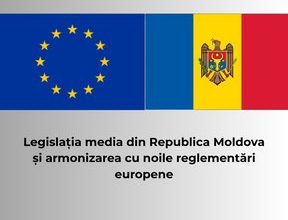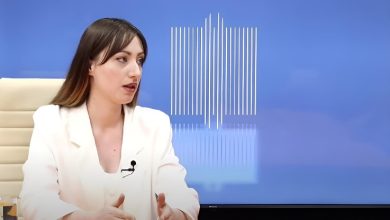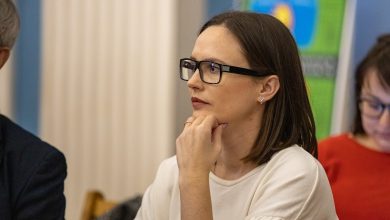Challenges of Switching to Digital TV in the Regions: Hefty Costs and Citizens Deprived of Information

Renata Lupacescu,
Editor-in-Chief, Studio-L regional TV channel, Causeni
Since January this year, TV in the Republic of Moldova changed radically, switching to digital format. This change implies, however, that classic antennas used by most Moldovans who had no cable or satellite connection have become useless, and the TV sets many of them own can no longer receive TV channels.
This definitive transition happened in May, when Moldovans were left without a signal and were forced to purchase devices suitable for receiving digital signal, to get newer TV sets which receive digital broadcasts autonomously, or to install external receivers (decoders) to add to their existing TV sets.
Many citizens in the regions of the country did not only have to bear additional expenses but also were faced with other difficulties because they (especially elderly people) are unfamiliar with new technologies: to start using a state-of-the-art TV set, they have to change the habits they have had for years, and those who install decoders also have to get used to an additional remote control.
Hefty Costs for the Broadcasters
In addition to the above, it should also be mentioned that both the audience and the media service providers suffer from financial pressure. I am referring to replacing signal transmission and repeating systems, because the antennas which receive the analog signal cannot be used for the digital one, and the costs of “renting” a required frequency after a licitation. The amount required for joining the national multiplex is circa 6 000 Euros per month, and no subsidies are provided by the state – this is an exaggerated amount the regional TV channels in the Republic of Moldova cannot afford.
Meanwhile, the transmission towers constructed for broadcasting the analog signal, in which millions of lei were invested, remain as “skeletons” on the hills; they can no longer be used and have to be dismantled. All the equipment for producing and distributing editorial content must be modernized, and old formats are no longer valid for digital broadcasting.
Situations Limiting the Right to Information
The definitive transition from analog to digital television has put minor broadcasters at a standstill and deprived the residents of some districts of the country of the regional sources of information, breaching the right to information and freedom of speech during an unprecedented regional crisis.
With the cessation of analog TV broadcasting, all the minor local or regional TV channels disappeared from the viewers’ homes. It is the population that loses under such circumstances. This breach of citizens’ right to information as a result of poorly implemented reforms is a serious problem capable of destroying the independent press.
Since January, we as the local broadcasters working in different districts of the country met with the state representatives. Our licenses for analog television broadcasting were revoked and more than 150.000 viewers from Causeni and Stefan Voda Districts were left without an alternative source of information, that is, without the air as most important distribution channel, overnight. The impact of this change limits the number of voices in the public space, which is a dangerous issue for democracy.
Requests to the Authorities and Solutions
In this context, we would like to address the Government demanding to take some steps which contribute to creating an environment where the free press could develop and citizens’ right to information could be respected. In spite of the fact that the Republic of Moldova was supposed to switch to digital terrestrial television as early as 2015, and the deadline was postponed several times, during these 7 years, the state has failed to suggest any alternative for the minor local broadcasters or for the citizens in the regions who were used to the local news they can no longer currently watch.
In my opinion, the Government of the Republic of Moldova has to take certain steps to subsidize the enormous expenses imposed on us or to contribute to their reduction in one way or another. Besides, the state could offer one channel in the national multiplex to all the minor regional TV channels which are still left in the districts; this channel could be shared by the regions. Such steps would allow us to invest in the equipment required to make a transition from analog to digital TV, and the citizens’ rights would be restored: they would be given back the things taken away from them – the regional broadcasting channels.
This switch from terrestrial analog television to digital terrestrial television is a paramount process for the future development of electronic communications services; however, it should not be done by saying “off with their heads” and by creating conditions which discriminate against a large part of the citizens, especially under the circumstances caused by an enormous informational crisis the Republic of Moldova is facing nowadays.
I believe that we, the persons who speak on behalf of the citizens from the regions of the country, those who stood at the basis of creating the rule of law in the Republic of Moldova, those who founded the Broadcasting Council in the early 90s, and those who have been protecting the residents of the regions from misinformation for several decades, deserve to be heard by the authorities, and that the people should be given back what the state has deprived them of without asking – the broadcasting channel, so that information could reach as many households in the regions of the Republic of Moldova as possible again.




